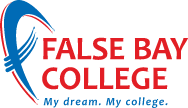The National Certificate (Vocational) offers learners a vocational alternative to an academic Grade 10-12 by offering specialised training on NQF levels 2-4.

The National Certificate (Vocational) offers learners a vocational alternative to an academic Grade 10-12 by offering specialised training on NQF levels 2-4.
If you would like to qualify with a specialised NQF level 4 certificate (Grade 12 equivalent) that will enable you to find relevant employment once qualified, the National Certificate (Vocational) is for you.
Motor mechanics maintain and repair motorcars and other vehicles. They receive information regarding the faults of the vehicle from owners. They may take the vehicle for a test drive and use electronic equipment to identify, confirm and locate the problem. After determining the cause of the problem they prepare a quotation for cost of repair.
Motor mechanics may take out broken or damaged parts of vehicles, order new parts, or alternatively, repair or replace the broken or damaged parts. Where necessary they will adjust brakes; replace shock absorbers; tighten bolts; align wheels; solder leaks in the radiator; replace oil, oil filters and air filters; and adjust lights, heaters, mirrors and windscreen wipers.
How is the programme structured?
The National Certificate (Vocational) is a three year qualification made up of three certificates obtained in NQF Levels 2, 3 and 4.
What will I learn?
The Fundamentals subjects (Levels 2,3,4) are:
The Vocational subjects for the National Certificate (Vocational) Automotive Repair and Maintenance (Level 2-4) are:
Engineering Fundamentals (Level 2)
This subject covers a broad range of aspects around work safety in the engineering field. It also teaches learners about the greater occupational areas and structures within the South African engineering and related design industry.
Engineering Technology (Level 2)
This subject covers details such as engineering hand and power tools and the use thereof. It also deals with measurement.
Engineering Systems (Level 2)
This subject teaches you the basic principles of hydraulics, pneumatics, automatic control systems and drivetrains.
Engineering Practice and Maintenance (Level 3)
This subject deals with solutions for design problems and conflict and also with ethics in the workplace. Learners are to design, develop and evaluate a prototype for a given engineering problem. Fault finding and plant maintenance.
Materials Technology (Level 3)
This subject explains ferrous metals, their composition and characteristics. Explain non-ferrous metals and their composition characteristics. Describe various processes of manufacturing steel. Identify the differences in ferrous metal processing, demonstrate knowledge of heat treatment and evaluating properties of materials through testing.
Engineering Graphics and Design (CAD) (Level 3) ( Drawing and Design) (Level 3)
This subject provides learners with the necessary skills for using and creating drawing language, freehand, isometric, orthographic projection and computer drawings. Handling of CAD programmes in various aspects is also covered.
Engineering Processes (Level 4)
The learner learns how to carry out a service and record the results. He learns about component dismantling and assembling, how to operate engineering machines and carry out machining processes. He learns about computer aided machine (CAM) and equipment and to identify different joining systems and to select appropriate joining methods.
Professional Engineering Practice (Levels 4)
The learner will learn how to identify ethical engineering workplace responsibilities, the function, philosophy and process of engineering design. To interpret sketches, graphs and drawings of engineering structures and mechanisms and to identify and explain different computer hardware devices and their functions in the engineering field.
Applied Engineering Technology (Level 4)
This program explains the principles of mechanical engineering. To design and construct a prototype, solve a given design problem and construct a control system to solve a given design problem.
Automotive repair and maintenance (Levels 2,3,4)
This subject covers the fundamentals of engine technology, vehicle components and the detailed specifics around vehicle maintenance.
What are the entrance requirements?
The minimum entrance requirement for the National Certificate (Vocational) at Level 2 on the NQF is a Grade 9 Certificate or NQF Level 1 equivalent
False Bay College offers quality, accredited, vocational, occupational and skills programmes in a range of fields, designed with Industry to meet the skills shortages of South Africa.
With 8229 students enrolled in 2020, Technical and Vocational Education and Training (TVET) colleges are an important avenue to post-school education and vocational training and are crucial to job creation, economic growth and the future prosperity of the country.
Along with its services to our youth, communities and diverse industries, False Bay TVET College has strong ties and strategic partnerships with employers, government departments, the SETAs, representative industry bodies and both local and international educational institutions.
These partnerships enable us to leverage resources and opportunities that give our students not only affordable access to quality training and jobs but to life skills, work experience and cultural enrichment.
© 2025 coursetakers.com All Rights Reserved. Terms and Conditions of use | Privacy Policy